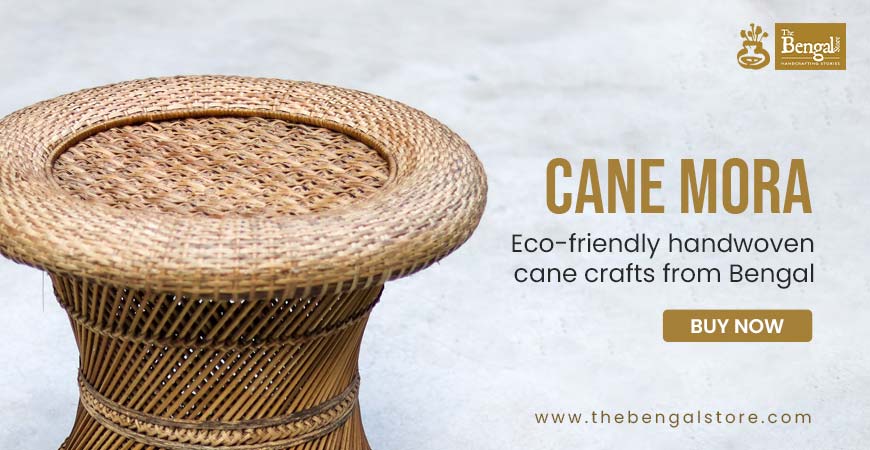Olympia Sporting House in Kolkata crafting javelin since 19th century – GetBengal story
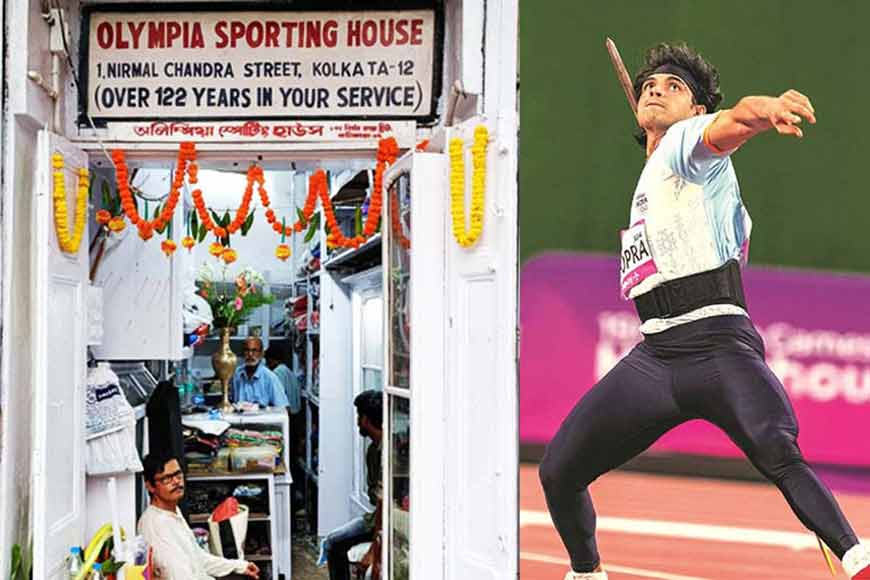
At the 2024 Paris Olympics, India’s Neeraj Chopra won the silver medal in the men’s javelin throw. Though many in India’s sports community were hoping he would join the elite league of legends like Eric Lemming (Sweden), Jonni Myyrä (Finland), Jan Železný (Czech Republic), and Andreas Thorkildsen (Norway), all of whom have won Olympic gold more than once in javelin, Neeraj narrowly missed that milestone. Becoming the first Indian athlete to win back-to-back Olympic golds remains a dream for now.
But did you know Kolkata has a deep connection with the javelin? In fact, it was Kolkata that first introduced javelin to India. The city is also home to one of India’s oldest and most important javelin manufacturers — Olympia Sporting House, located at 1 Nirmal Chandra Street.
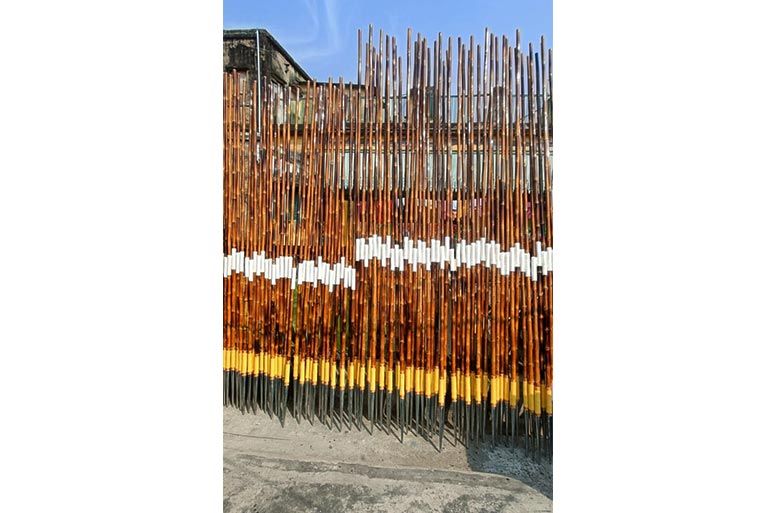
Even though Neeraj couldn’t win gold this time, his historic gold medal at the previous Olympics gave a strong boost to javelin awareness and interest across India, says Riddhishikhar Basu, one of the key figures at Olympia Sporting House.
In his words, “What is javelin? Many people didn’t even know that before. But after Neeraj won gold, there’s been a real rise in awareness. The response has been amazing. A lot more people are now asking about javelin, getting curious, and showing interest. Javelin has always been there, but the gold medal truly gave it a boost across the country. It’s inspired people in a big way.”
Just like Firingi Kalibari of Bowbazar or the legendary Bhimnag sweets shop, Olympia Sporting House has also become a remarkable part of Kolkata’s living history. The store was founded by Sajal Ghosh, who was both a mentor to Riddhishikhar Basu’s grandfather and a relative (his maternal uncle by marriage). The present owner is Dr. Shekhar Chandra Basu, Riddhi’s father.
Olympia’s journey began in 1896 — the same year the modern Olympic Games were first held in Athens. Riddhi shared the story behind the name: “Since it was a sports equipment store and 1896 marked the start of the Olympics, they named it Olympia.”
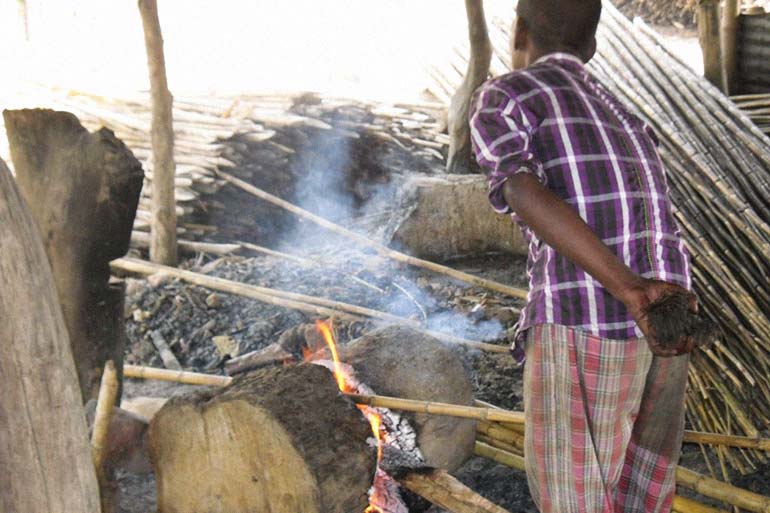
Olympia gained widespread fame for its javelins made of bamboo. In earlier days, the shop mainly focused on crafting fishing rods and bamboo javelins. Such was the demand for their javelins that they were not only used all across India, but were also exported to various countries across Europe and Asia. Olympia once stood as a global supplier of handcrafted bamboo javelins.
According to Riddhi, bamboo javelins are flexible, durable, and also affordable. For beginners who want to take up javelin throw seriously, bamboo javelins are ideal, he says.
He further explained that they make javelins using Burmese bamboo, which is mostly sourced from Tripura. After that, the bamboo is treated through a process called smoking. Using steam at a specific temperature, the bamboo is carefully ripened. Then, a grip is attached, and finally, a steel tip is fixed to the head of the javelin.
From the 1960s to the 1990s, Olympia was India’s only javelin manufacturer. At its peak, the company produced nearly 3,000 javelins per month. Legendary sports icons like Chuni Goswami and PK Banerjee relied on equipment made by Olympia. In fact, during the 1950s and '60s, Olympia had a monopoly in the javelin market across India.
At that time, the business was managed by Riddhishikhar’s grandfather, Bibhutibhushan Basu. Riddhi is now the fourth generation in his family to take charge of the business.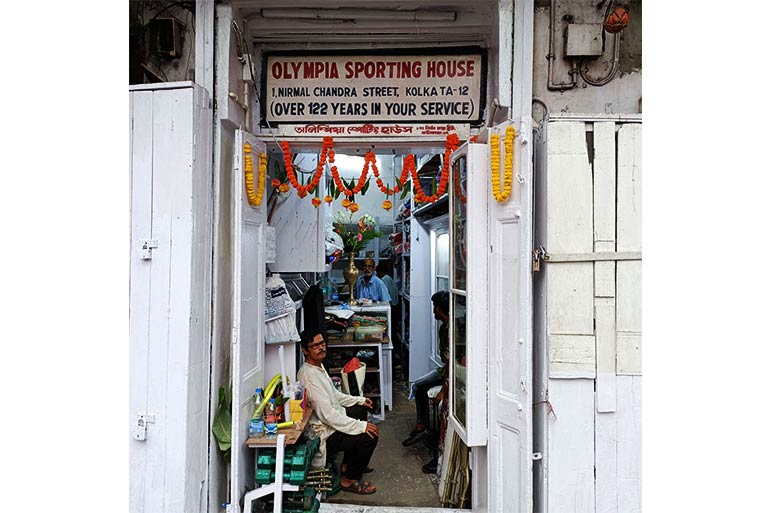 He explains, “Today, with technological advancement, fiberglass javelins made in China are commonly used — even Neeraj uses those now. Earlier, bamboo javelins were used in the Olympics. Times have changed. But we still make our own javelins. In Eastern India, almost all javelins used in schools and colleges come from our company. In North India, especially in Meerut, aluminum javelins are more popular. But in the East, bamboo javelins are still in use.”
He explains, “Today, with technological advancement, fiberglass javelins made in China are commonly used — even Neeraj uses those now. Earlier, bamboo javelins were used in the Olympics. Times have changed. But we still make our own javelins. In Eastern India, almost all javelins used in schools and colleges come from our company. In North India, especially in Meerut, aluminum javelins are more popular. But in the East, bamboo javelins are still in use.”
Today, Olympia manufactures both bamboo and aluminum javelins, offering four weight categories based on the athlete's age and gender. For girls, the javelin weighs 500 grams; for women, 600 grams; for boys, 700 grams; and for men, 800 grams. A bamboo javelin is priced at around Rs. 500, while an aluminum one costs approximately Rs. 1000.
Beyond javelins, Olympia also produces a range of other sports equipment. They are known for crafting bamboo bows and arrows used in archery. In fact, during the 1982 Asian Games held in Delhi, all archery gear was supplied by Olympia. The company’s legacy extended further in 2011, when the fiberglass goalposts used in the friendly football match between Argentina and Venezuela at Salt Lake Stadium (Yuva Bharati Krirangan) in Kolkata were also made by them.
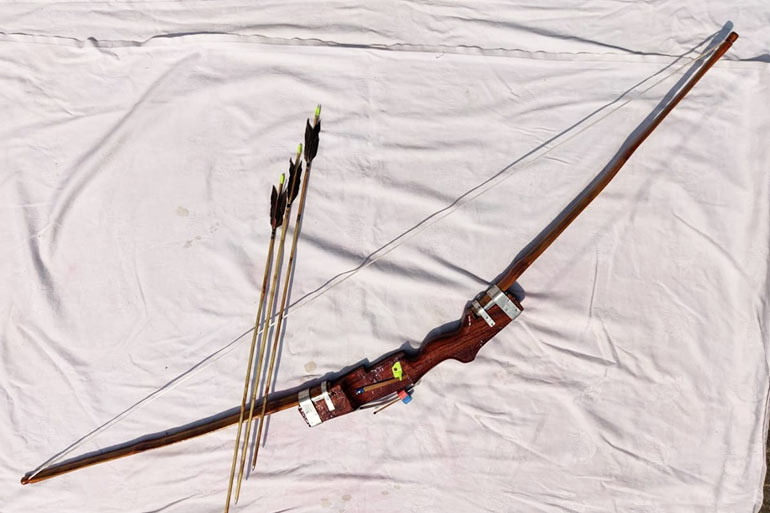
The bamboo required for their javelins is primarily sourced from Shillong and other parts of Meghalaya. Olympia continues to expand its manufacturing line, now also producing boxing gloves, football goalposts, and various other sporting goods. According to Riddhishikhar Basu, the Sports Authority of India (SAI) continues to use and trust equipment made by Olympia.
Note: Translated by Sabana Yasmin
To read the original Bengali article, click here:








